“Come Eat!” The Senegalese Culture of Hospitality
Posted on
09/27/18
Author
Megan Fettig - Co-Director of Adult Programs
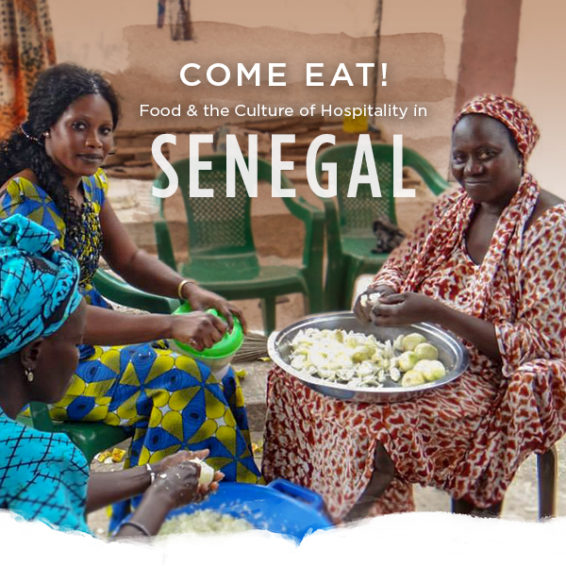
Photo by Elke Schmidt, Senegal Program.
As I meander down a sandy path in the Senegalese neighborhood of Yoff, I hear someone shout, “Kai Lekk!” I look up knowing that this familiar Wolof phrase meaning “Come Eat!” is in fact an invitation. A smiling face glows at me from a circle of people who are gathered around a silver bowl, their right hands beholding greasy rice. They are participating in an ageless afternoon African tradition of gathering amongst friends and family to enjoy a home cooked meal. In this case, they are eating my favorite, thieboudienne, Senegal’s National Dish, which consists of a scrumptious mélange of cooked vegetables, spicy stuffed white fish, and rice cooked with tomato paste.
thieboudienne, Senegal’s National Dish, consists of a scrumptious mélange of cooked vegetables, spicy stuffed white fish, and rice cooked with tomato paste
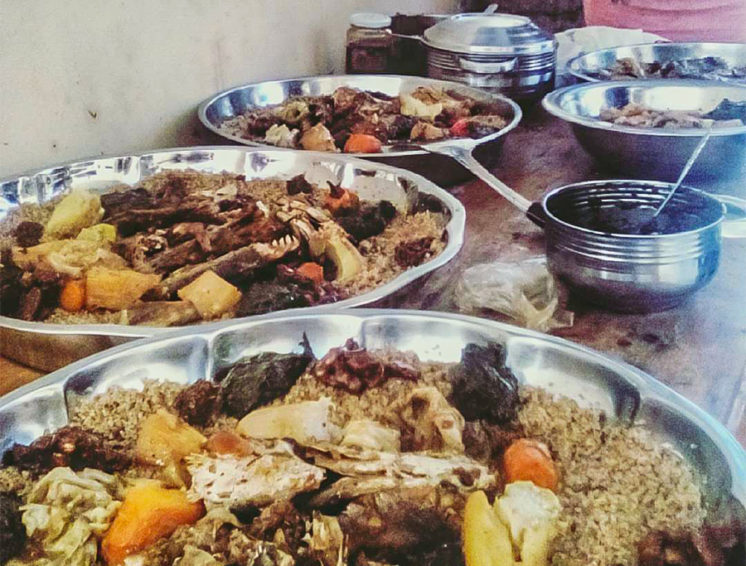
Plates of cheb (rice), by Elke Schmidt, Senegal Program.
In any language in Senegal you will find the same message to come eat called out time and time again. In a country where people have so little in terms of material items, where the entirety of a person’s belongings can sometimes fit into a recycled aluminum can trunk, it shocks me that generosity and hospitality are offered without hesitation. A personal example that elucidates this happened over a decade ago.
In 2006, I was guiding a group of a dozen adventurous Dragons students through the rolling green hills of southern Senegal. We wanted to explore this seldom-visited nook of West Africa on foot in an attempt to witness and experience rural life first hand. One particularly beautiful afternoon, we came upon a remote village of earthen round, hobbit-like, thatched roof huts perched in a cluster amongst a vibrant parade of rainy season greenery. Weary from a day of hiking uphill under the relentless West African sun, we stumbled towards the Chief’s abode to inquire about lodging. Without missing a beat he exclaimed, “Bismililaye! You are welcome to stay in my village but you must be my guest!” With his large smile and readiness to share, he exuded terranga, a Wolof word roughly translating to outrageous hospitality.
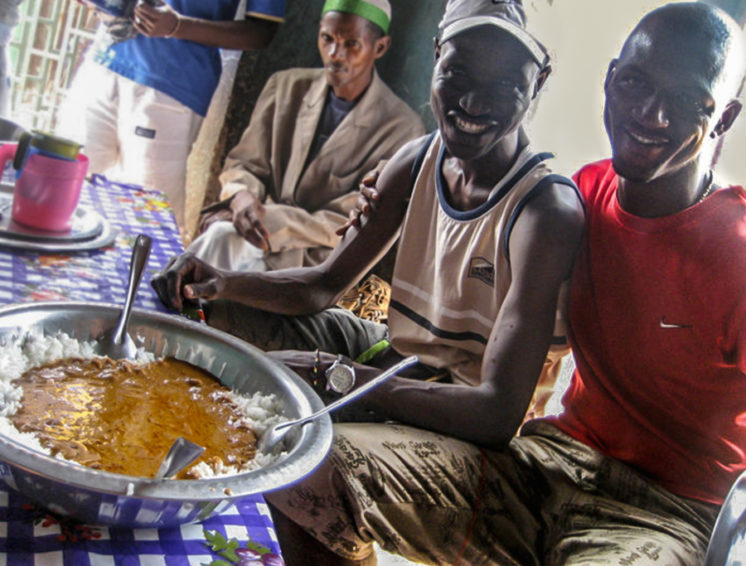
Mbouille & friends with plate of Mafe Gerte. Photo taken by Babacar Mbaye.
For me, “Kai lekk” and terranga are Senegal’s national pride. I’ve spent 18 years now traversing the Atlantic at any opportunity that arises to find myself in a country I continue to find a delightful amalgam of the challenging and the inspiring. On the one hand, I struggle with the oppressive heat that inspires rivulets of sweat to run down my stomach, the piles of trash on the urban beaches, and the barefoot children in tattered clothes with outstretched tomato paste cans begging for a sugar cube or a few coins. On the other hand, I am moved by the Senegalese ability to laugh, to be adorned in vibrant colors, and the way a stranger is called over to take a handful of rice or share rounds of sweet mint tea with neighbors. Through the trials and joys of nearly two decades of a tumultuous love affair with Senegal, she has been my greatest teacher of gratitude, generosity, and the enormous potential of the human spirit.
If you’d like to experience the way of Senegalese hospitality and eat delicious thieboudienne while you’re at it, consider joining us on one of our West African adventures. For adults, warm up from winter this February on our Music & Mysticism trip. For students, we offer In The Shade of the Boabob Tree, a 4-week summer program, and Rhythms of Senegal, a vibrant gap year semester program in West Africa.
Ps. If you’d like to know how to make a simple and incredibly delicious Senegalese staple, read how to make the peanut sauce Mafé Gerte!
|
|
CO-DIRECTOR OF ADULT PROGRAMS
|

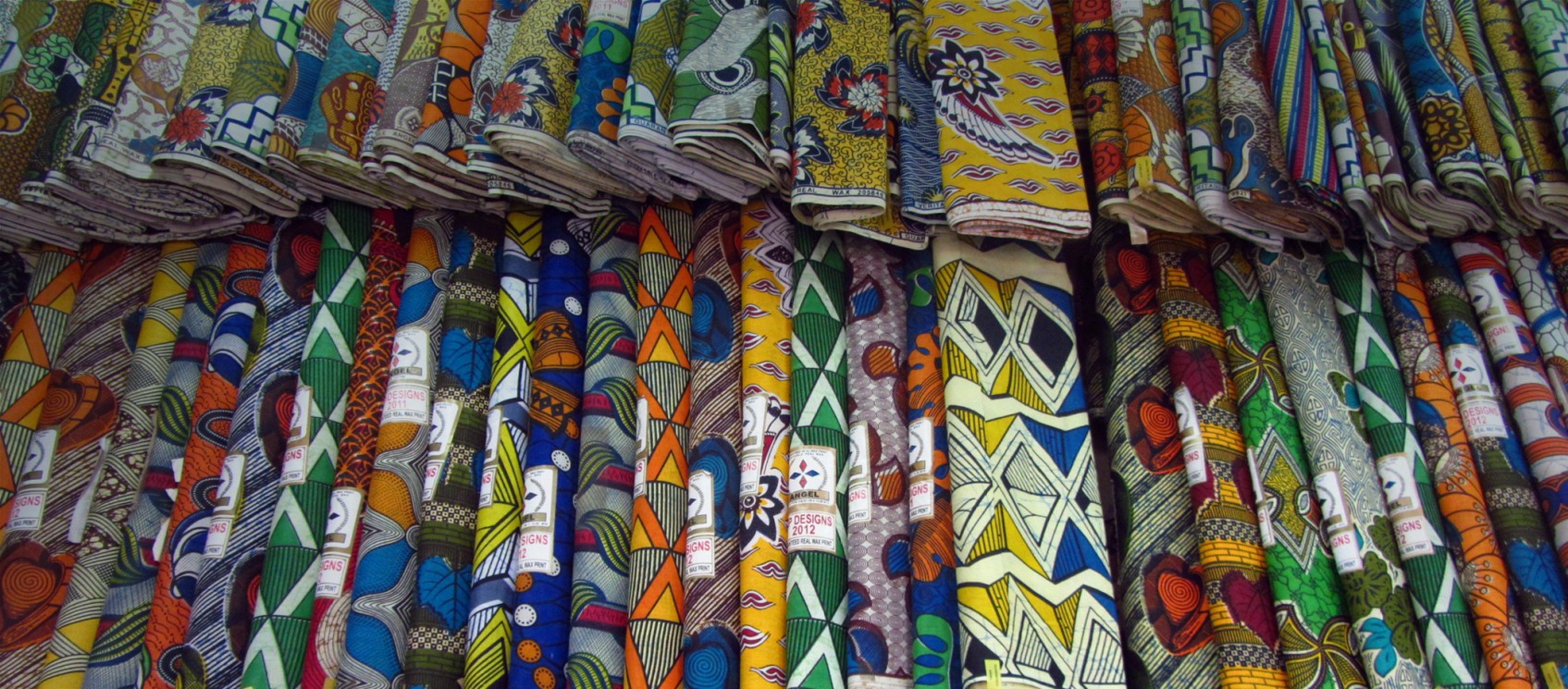

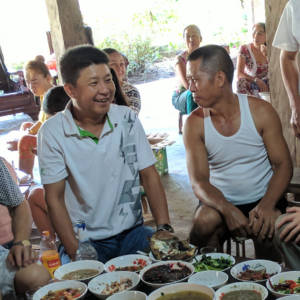
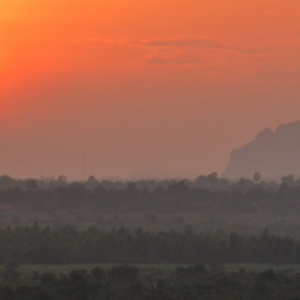
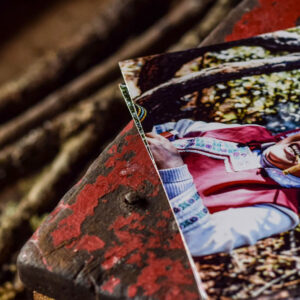
Leave a Comment